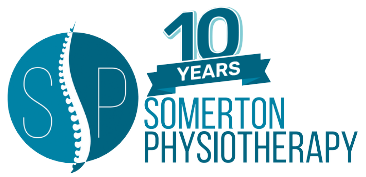Paediatric Physiotherapy

Paediatric Neuromusculoskeletal Physiotherapy
Due to the physiological differences between children and adults, children require a specialised approach to physiotherapy. Maria has a specialist interest in the clinical area of paediatric neurodevelopmental physiotherapy.
Maria will provide a thorough assessment and bespoke interventions to help your child achieve their developmental milestones and aid optimal motor development. The main goal is to help children to participate in activities they enjoy!
Some of the more common conditions that Maria effectively treats include:
- Delayed milestones: it is taken for granted that babies will achieve their milestones, but like us all babies sometimes need to be trained and guided in order for them to achieve milestone such as sitting, crawling and walking.
- Gait problems and ‘tip toe’ walking: as children grow they can develop an uneven walking pattern which can be improved with physiotherapy.
- Scoliosis: is a name given to an abnormal curvature of the spine. This can be helped with a specific flexibility and strengthening exercise programme for the spine.
- Erbs Palsy: also known as brachial plexus paralysis. This is when the primary nerves which supply the movement and sensation to the arm are partially or completely paralysed causing weakness and limitation of movement. Physiotherapy helps to maximise the range of movement, strength and function of the affected arm.
- Plagiocephaly: more commonly known as ‘flat head, is a common paediatric condition which requires a specialised assessment and intervention to resolve this cranial misshapenly problem.
- Torticollis or ‘Wry Neck’: describes a condition where tight neck muscles on one side of the neck limits a child’s neck movements. Positioning and specific stretches can help to restore full neck movements.
- Hypermobility: describes when a child has an increased range of movement in joints. Specialised physiotherapy intervention can help to control this increased range of motion which in turn will help resolve secondary problem such as muscle/joint pain, balance and motor skill problems.
- Juvenile Arthritis: is a disease involving the immune system. It causes inflammation of joints and muscles, causing pain, weakness and stiffness. Physiotherapy can help alleviate these symptoms and help improve a child’s quality of life.
- Osgood’s Schlatter disease: is an inflammation of the bone, cartilage and or tendon at the top of the shin bone. Knee problems are common in adolescents. Physiotherapy can help resolve these symptoms and help the child continue to participate in the activities they enjoy.
- Growing pains: are pains generally in children’s or adolescent’s legs often attributed to rapid growth. This is a common issue seen by paediatric physiotherapists. We can help reduce symptoms so they do not interfere with natural development.
To get in touch email us on [email protected] or phone us on (01) 9069566 . Follow us on Instagram for physiotherapy and clinic Updates.
